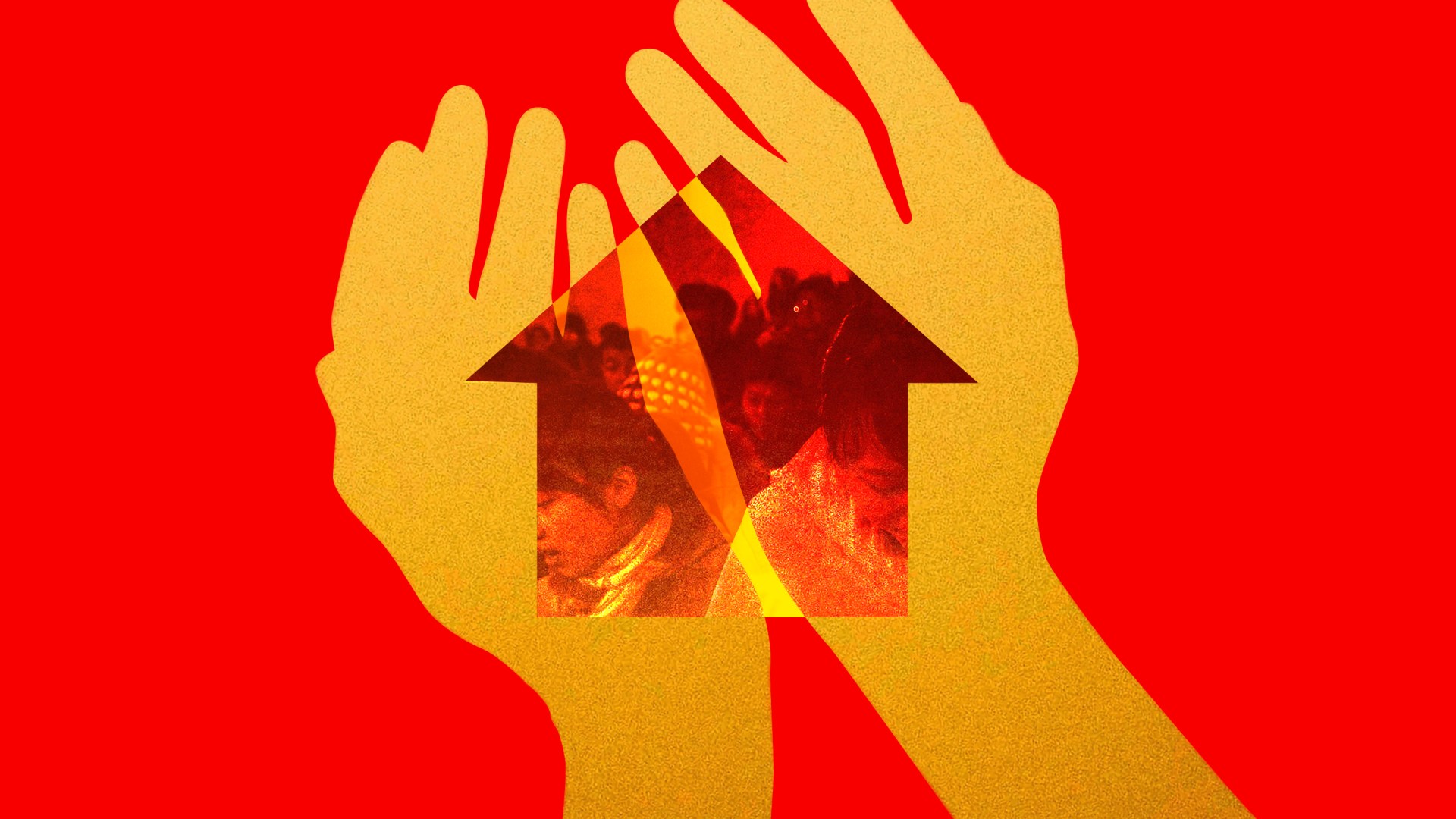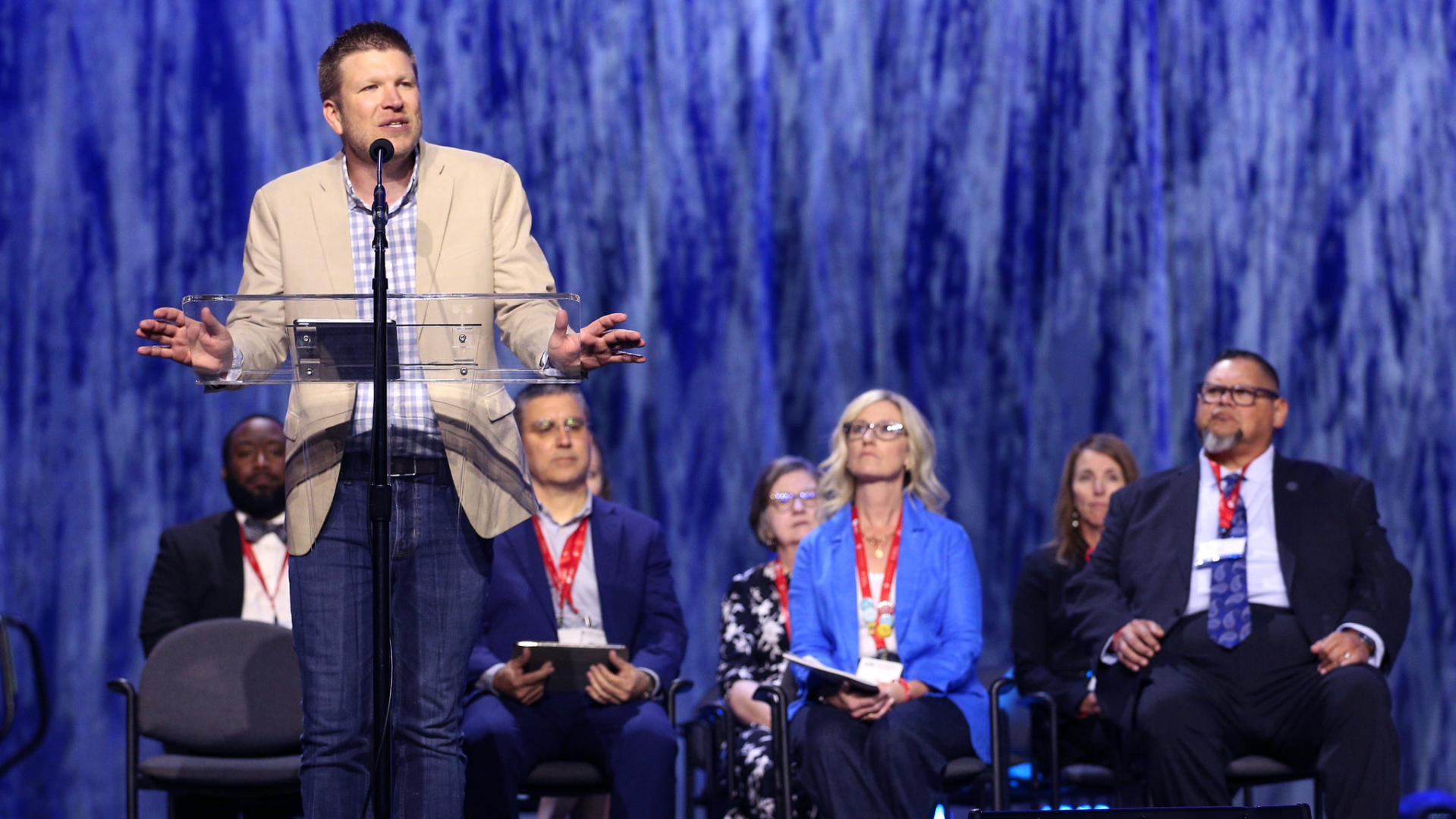When our first daughter was born, in the fall of 2021, she couldn’t nurse properly. For my wife, feeding her was an every-few-hours exercise in pure pain. Lactation consultants were consulted, to little avail; a minor tongue-tie operation, newly trendy in such cases, didn’t help either. We thought about switching to formula, but my wife was dead set on seeing nursing through.
So we triple-fed: She would nurse the baby through gritted teeth for as long as she could stand it, while I tried my best to distract her—singing songs, reading, putting something on the TV. Then I’d take the kid and finish the feeding by bottle while my wife pumped. As it turned out, the baby just needed to get a little bigger. By eight weeks, my wife’s pain was gone.
When our second daughter was born last year, the process seemed to restart—then unexpectedly cleared up in week two. The bigger challenge, it turned out, was managing the emotions of the now-toddler, who found herself, unexpectedly, no longer the center of the known universe.
After a period of protest, she settled into a new equilibrium. Yes, mom had a new baby, but she still had dad. For those first few weeks, the toddler and I were inseparable. (I made time for mom and baby too!) Soon, she had grown to like her little sister enough for us all to reintegrate as one happy family.
Both these stories have a key subtext: I was on paternity leave. Under my then-employer’s heroically generous, deliberately pro-family policy, I was free to take up to 12 weeks off per child to help my wife recover from childbirth and to bond with our new arrival.
I was lucky; that arrangement is rare. Most American fathers take only a short stint of paternity leave when their children are born, if any. Despite a growing number of companies and states offering some form of time off for dads—Washington implemented a 12-week standard for all federal employees back in 2022—and surveys finding that a majority of Americans support the practice, the median US father still takes just a single week of leave. Seven in ten take two weeks or less.
Some of this is simple corporate policy; many fathers would take more leave if their place of work accommodated it. But there’s also a reason so many companies get away without offering much: There’s still a good deal of complicated cultural resistance to new dads taking time off too, with masculine anxieties about being seen as insufficiently driven at work coming into play. Even in countries with generous government-funded paternity leave—South Korea and Japan, for instance—many fathers don’t take time off.
For conservative US Christians in particular, the concept of paternity leave can seem to cut against a number of our own political and cultural instincts. Some might roll their eyes at employers—to say nothing of taxpayers—being asked to foot the bill for a dad’s stay at home with a newborn. He’s not the one recovering from childbirth, after all, an important and essential biological distinction.
Others might see in a society that prioritizes maternity leave in particular a healthy assertion of traditional gender roles. That holds true whether a child is biological or adopted. Moms stay home with their kids—playing and nurturing, washing and feeding. Dads get back out there and work.
But the biggest driver of many Christians’ skepticism of paternity leave is the same as in the culture at large: simple inertia. People didn’t use to have the luxury of paid paternity leave, they reason, and they managed to make do. Having dad at home is an extravagance the baby won’t even remember.
Dads who do take leave often encounter this inclination even from well-meaning friends and acquaintances: How’s your time off treating you? Managing to fill up the hours? Bet you’re itching to get back to it, huh?
It’s past time for Christians to revisit this attitude. We know that fatherhood is no low calling, no secondary role. Fathers are primarily tasked not with paying for groceries and college educations—though that’s good too—but bringing up their children in the “discipline and instruction of the Lord” (Eph. 6:4, ESV throughout). The Book of Proverbs is one long fatherly instruction in righteousness: “Hear, O sons, a father’s instruction, and be attentive, that you may gain insight, for I give you good precepts; do not forsake my teaching” (4:1–2).
Scripture shows us good fathers who are immediate and intimate, wise and compassionate—welcoming home a prodigal son with a feast (Luke 15:20–24), prepared to die in peace after seeing a beloved child’s face one last time (Gen. 46:29). Ultimately, of course, fatherhood is a duty modeled for us by God our father—no absent provider, but a father who warmly invites us to approach him in love.
Do fathers need paternity leave to fulfill this calling? Of course not. But obliging a father to rush back to work just a week or two after birth stacks the deck against that vocation in all sorts of ways, even if, to start, there’s more diaper changing than “discipline and instruction.” All at once, a joint effort becomes a solo project on mom’s part to discover, navigate, and surmount the various challenges of early parenthood—the challenges through which one learns what it is to be a parent.
Almost by default, dad becomes a bystander to this process. Far from providing spiritual leadership to his family, he can find himself retreating into the role of secondary parent, somebody who’s happy to leave all the hard parts of the job to mom, the battle-tested expert who knows where the diaper rash ointment is and how to pick up a slippery infant from a bath.
I’m sure we ultimately would’ve muddled through the small challenges I mentioned above without the blessing of paternity leave. Triple-feeding our first daughter wouldn’t have been an option, so we would’ve just switched to formula. Nothing wrong with formula!
Still, after giving up on breastfeeding the first time, odds are we would have done the same the second time around too—and after two such failures to launch, why even bother to try again in the future, should we be blessed with more children?
Our toddler would have found other ways to cope with early sisterhood, as my wife with the thousand little struggles of early motherhood.
But I’m grateful both to God and to my former employer that, in those formative first few months, my family wasn’t obliged to figure out the contours of a new life in which I was only an occasional presence from the jump. I’m grateful that I had the opportunity to pause my life as I knew it then for a few short weeks to accommodate our brand-new one—that instead of learning how to cram fatherhood into whatever gaps in my work, I was able to take my crash course in rudimentary fatherhood, then go figure out how my job was going to fit in with that.
So, companies: Offer it! Christians: Embrace it! Dads: Take it—and then spread the word!
Andrew Egger is the White House correspondent at The Bulwark.








































